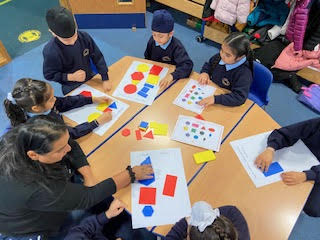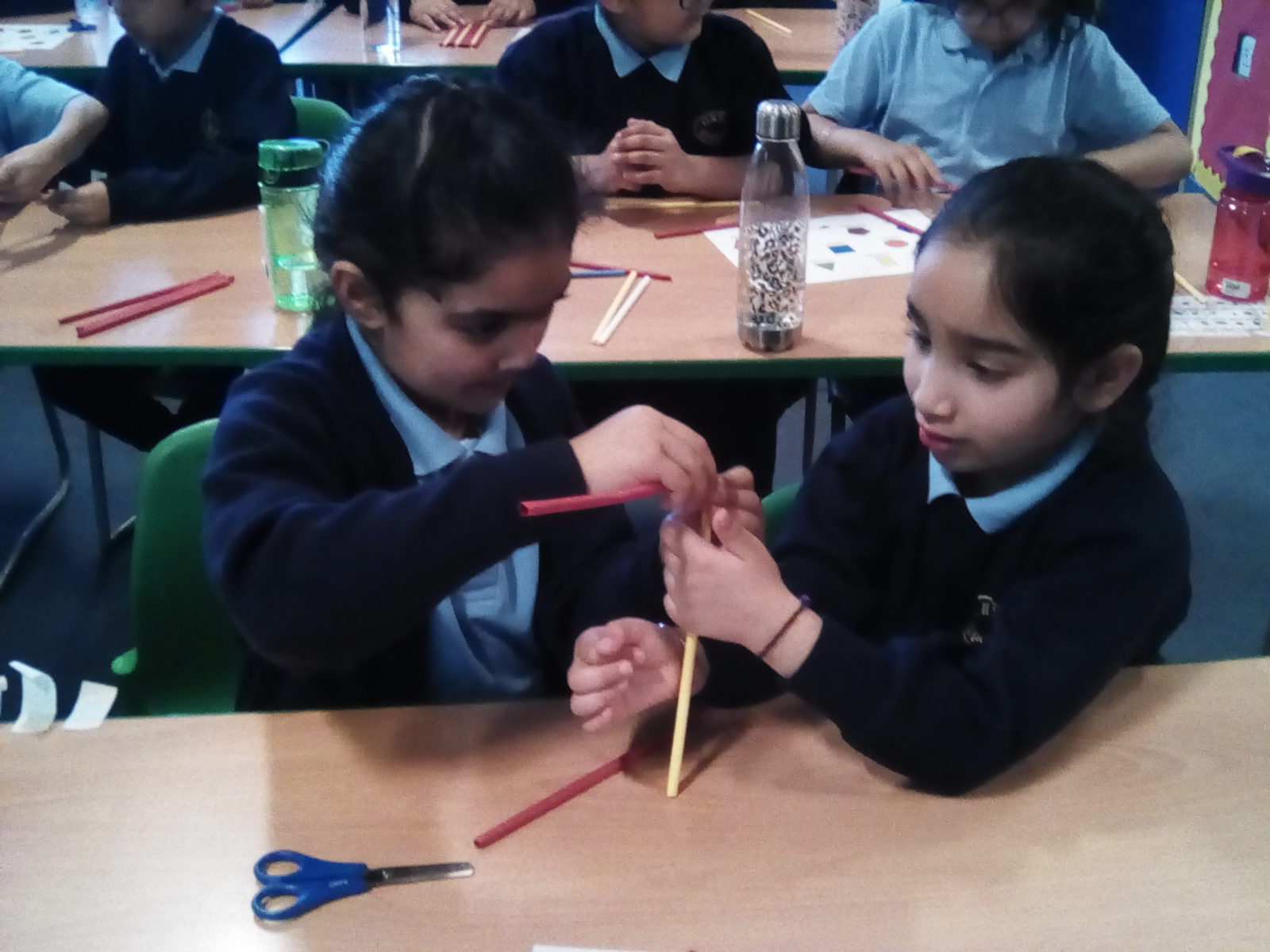
Home
Maths
Our aspiration for every learner
At Guru Nanak Sikh Academy our aim is to deliver a mathematics curriculum which inspires a passion for mathematics and develops confident and resilient learners. Through careful planning and engaging learning experiences all pupils will have the ability to master the knowledge needed to apply fluency in the fundamentals of mathematics, reason mathematically following a line of enquiry and solve problems by applying their mathematics with increasing sophistication in their learning. We ensure that as pupils move through the programmes of study they are given ample opportunities to consolidate their understanding through additional practise, retrieval activities to embed long-term memory and targeted teaching.
Where pupils rapidly grasp concepts our curriculum provides challenge through a range of complex problems and opportunities to further develop these skills. Our innovative use of online platforms such as Times Table Rockstars and Manga High, supports the learning of multiplication tables and promotes increased engagement in Mathematics both at school and home.
It is our purpose in teaching mathematics, to:
- Provide a curriculum that builds on prior knowledge and consolidates previous work, in order to improve long term recall of key information and processes;
- Enable children to make rich connections across mathematical ideas to develop fluency, mathematical reasoning and competence in solving increasingly sophisticated problems.
- Develop students’ ability to solve problems in a variety of contexts, building their confidence to tackle unfamiliar problems in new situations;
- Develop a wide range of mathematical vocabulary in all aspects of maths teaching and develop the ability to reason and make sense of problems, explain their thinking process leading to the solution.
- Make students aware of the use of mathematics in everyday life and to build awareness and skills related to matters that will be important to them as they develop into young adults.
- We enable our pupils to develop financial literacy, become critical scientists and confident with technology, and to use these skills to become active citizens who make positive contributions to society.



Key stage 1
The principal focus in key stage 1 is to ensure that pupils develop confidence and mental fluency with whole numbers, counting and place value. At this stage, pupils develop their ability to recognise, describe, draw, compare and sort different shapes and use the related vocabulary. Teaching involves using a range of measures to describe and compare different quantities such as length, mass, capacity/volume, time and money.
Key stage 2
At key stage 2 pupils extend their understanding of the number system and place value to include larger integers. This develops the connections that pupils make between multiplication and division with fractions, decimals, percentages and ratio. Pupils are taught to develop their ability to solve a wider range of problems, including increasingly complex properties of numbers and arithmetic, and problems demanding efficient written and mental methods of calculation.
By the end of year 6, pupils are fluent in written methods for all four operations, including long multiplication and division, and in working with fractions, decimals and percentages.
How we support our pupils to acquire this learning:
Our whole curriculum is shaped by our school vision which aims to enable all children to flourish to become the very best version of themselves they can possibly be.
- For maths, our long term planning follows the National Curriculum 2014. The use of Rising stars medium term planning is adapted to create a bespoke curriculum designed to meet the needs of our children and to allow for opportunities for revisit and retention, ensuring full coverage of the national curriculum for mathematics and providing a broad and balanced spread of all areas of the curriculum. Teachers are confident to manipulate this planning in the short term in order to meet the needs of all of our children.
- We implement our approach through high quality teaching delivering appropriately challenging work for all individuals. To support us, we have a range of mathematical resources in classrooms including Base10 counters (concrete equipment). When children have grasped a concept using concrete equipment, images and diagrams are used (pictorial) prior to moving to abstract questions. Abstract maths relies on the children understanding a concept thoroughly and being able to use their knowledge and understanding to answer and solve maths without equipment or images.
- Alongside the Rising stars materials, we use many other resources to ensure that our offer is rich and varied. These include: Learning By Questions, Deepening Understandings, NCETM, NRich,– these are used across KS1 and KS2 allowing children to be exposed to a variety of different types of learning and to ensure coverage of fluency, problem solving and reasoning in different formats.
- Challenge is visible throughout lessons, where children are asked to reason and prove their understanding at a deeper secure level. Problem solving strategies are taught once the children have secured facts and methods. Children work both collaboratively and independently when solving problems which require them to persevere and develop resilience.
- From Reception to Year 6, Teachers implement the schools agreed calculation policies for progression in written and mental calculations.
- We use Times Table Rock Stars to enthuse the children in learning times tables.
- Calculation practice is provided regularly through basic skills starter activities in each class whereby children are set a maths task to ensure general maths knowledge and fluency are maintained and developed; these may take many forms, for example: arithmetic, specific times tables or several questions about a mixture of maths topics.
- Learning is differentiated to meet the needs of the children within the class whilst still providing each child with the opportunity to achieve the learning intentions to meet the expectations of their year group.
- Timetabled interventions for maths are in place for children with SEND; all other children receive regular group support as part of their maths lessons with further support for individuals or small groups where a need is identified.
- A clear success criteria is given to children so they understand the steps involved in becoming successful in their learning.
- Opportunities to collaborate in pairs or small groups are given regularly so children can learn from and support each other.
- Opportunities for peer and self-assessment are provided weekly so children are given instant feedback in their learning.
- Quality first teaching is provided throughout the school along with effective teacher modelling along with effective assessment for learning to make sure children are moved on in their learning or supported when finding it difficult.
Online Maths resources and activities:
These links have various child-friendly websites that provide excellent, free resources. You can use these resources to support your children at home and encourage them to become independent learners.

